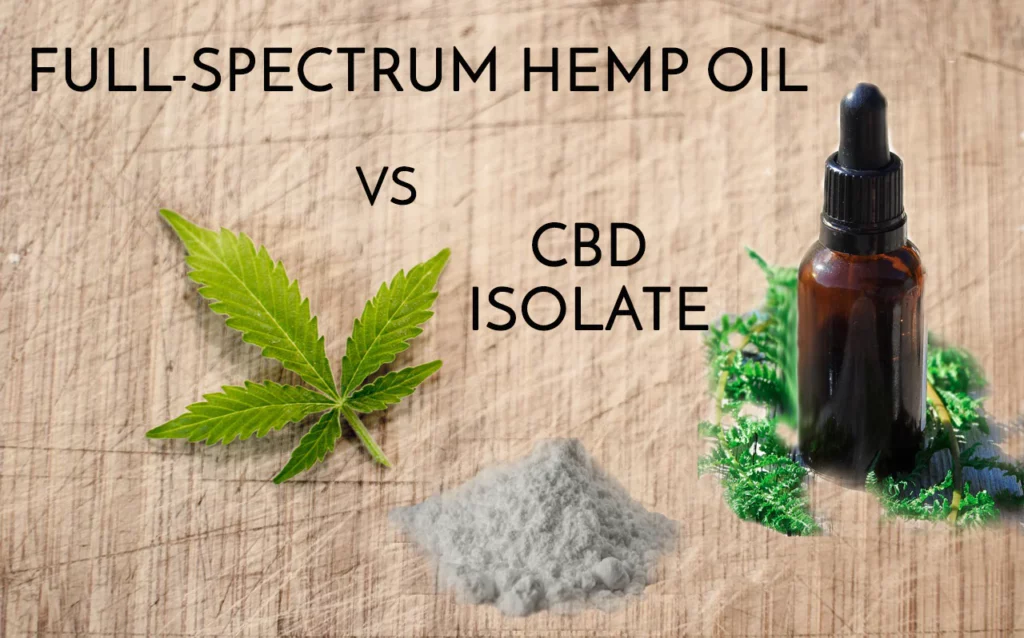Introduction
In recent years, the popularity of CBD (cannabidiol) products has soared, thanks to their potential health benefits and non-intoxicating nature. When shopping for CBD products, you may come across terms like “Broad Spectrum” and “Full Spectrum.” These terms refer to different types of CBD extracts. In this comprehensive guide, we will explore the differences between Broad Spectrum CBD and Full Spectrum CBD, including their compositions, potential benefits, and considerations for choosing the right option for your needs.
What is CBD
Before diving into the specifics of Broad Spectrum CBD and Full Spectrum CBD, it’s essential to understand CBD itself. CBD is a cannabinoid derived from the cannabis plant, but it does not cause the psychoactive effects commonly associated with marijuana. It is known for its potential therapeutic properties, including pain relief, anti-inflammatory effects, and alleviation of anxiety and depression symptoms.
Full Spectrum CBD
Full Spectrum CBD refers to an extract that contains all the naturally occurring compounds found in the cannabis plant, including cannabinoids, terpenes, and trace amounts of THC (tetrahydrocannabinol). While the THC content is typically limited to 0.3% or less, it may still be detectable in drug tests. The presence of other cannabinoids and terpenes is believed to create an “entourage effect,” where the compounds work synergistically to enhance the potential benefits of CBD. This synergy is thought to improve the overall effectiveness of Full Spectrum CBD.
Broad Spectrum CBD
Broad Spectrum CBD, on the other hand, shares similarities with Full Spectrum CBD but with one key difference. Broad Spectrum CBD also contains a wide range of cannabinoids and terpenes found in the cannabis plant. However, during the extraction process, the THC is completely removed, ensuring that the final product is THC-free. This makes Broad Spectrum CBD an attractive option for individuals who want to experience the potential benefits of various cannabis compounds without consuming THC.
Potential Benefits
Both Broad Spectrum CBD and Full Spectrum CBD offer potential health benefits, although the presence or absence of THC can influence their effects. Full Spectrum CBD, with its trace amounts of THC, may provide additional benefits due to the entourage effect. The combined action of cannabinoids and terpenes may enhance the therapeutic potential, providing relief from pain, inflammation, anxiety, and more. Broad Spectrum CBD, without THC, is ideal for those who want to avoid any possible psychoactive effects or have concerns about THC consumption.
Considerations for Choosing
When deciding between Broad Spectrum CBD and Full Spectrum CBD, several factors should be considered:
- THC Sensitivity: Individuals who are sensitive to THC or subject to regular drug testing may prefer Broad Spectrum CBD to ensure they avoid any THC-related issues.
- Entourage Effect: If you believe in the potential benefits of the entourage effect and are not sensitive to THC, Full Spectrum CBD might be worth considering.
- Legal Considerations: THC content is strictly regulated in many regions. Ensure you are aware of the laws and regulations governing CBD products in your area before making a decision.
- Personal Preferences: Ultimately, it comes down to personal preference. Some individuals may find that one type of CBD extract works better for them than the other. Experimentation may be necessary to find the most suitable option for your specific needs.
Conclusion
When it comes to choosing between Broad Spectrum CBD and Full Spectrum CBD, it’s essential to consider your specific circumstances, preferences, and legal considerations. While Full Spectrum CBD offers the potential benefits of the entourage effect, Broad Spectrum CBD provides a THC-free option for those who want to avoid any psychoactive effects. Understanding the differences between these two types of CBD extracts will help you make an informed decision and maximize the potential benefits of
CBD. It’s always recommended to consult with a healthcare professional or a knowledgeable CBD specialist before starting any CBD regimen to ensure the best possible outcome.
In conclusion, both Broad Spectrum CBD and Full Spectrum CBD offer unique benefits and considerations. Full Spectrum CBD contains all the naturally occurring compounds, including THC, potentially providing the entourage effect. Broad Spectrum CBD, on the other hand, retains the beneficial cannabinoids and terpenes but eliminates THC, making it a suitable option for those who want to avoid THC or have sensitivities to it. Ultimately, the choice between Broad Spectrum CBD and Full Spectrum CBD depends on individual preferences, THC sensitivity, legal considerations, and desired therapeutic effects. Understanding the differences between these two types of CBD extracts empowers consumers to make informed decisions and find the most suitable CBD product for their specific needs.

